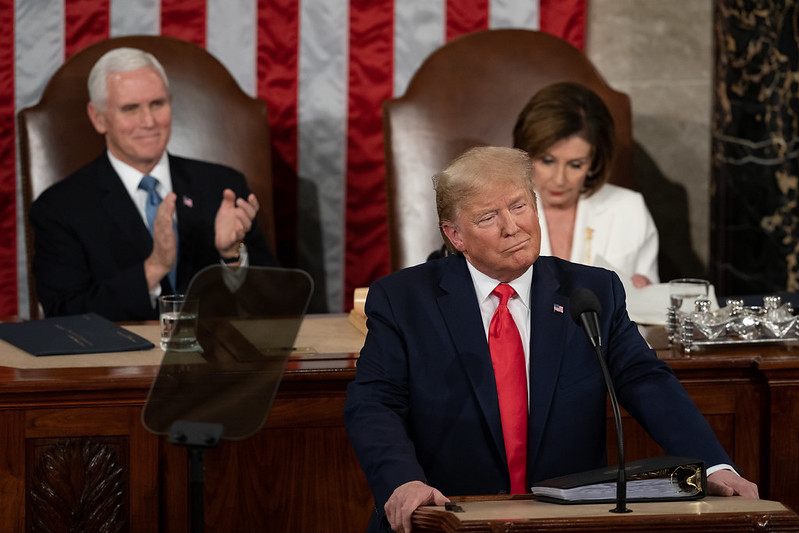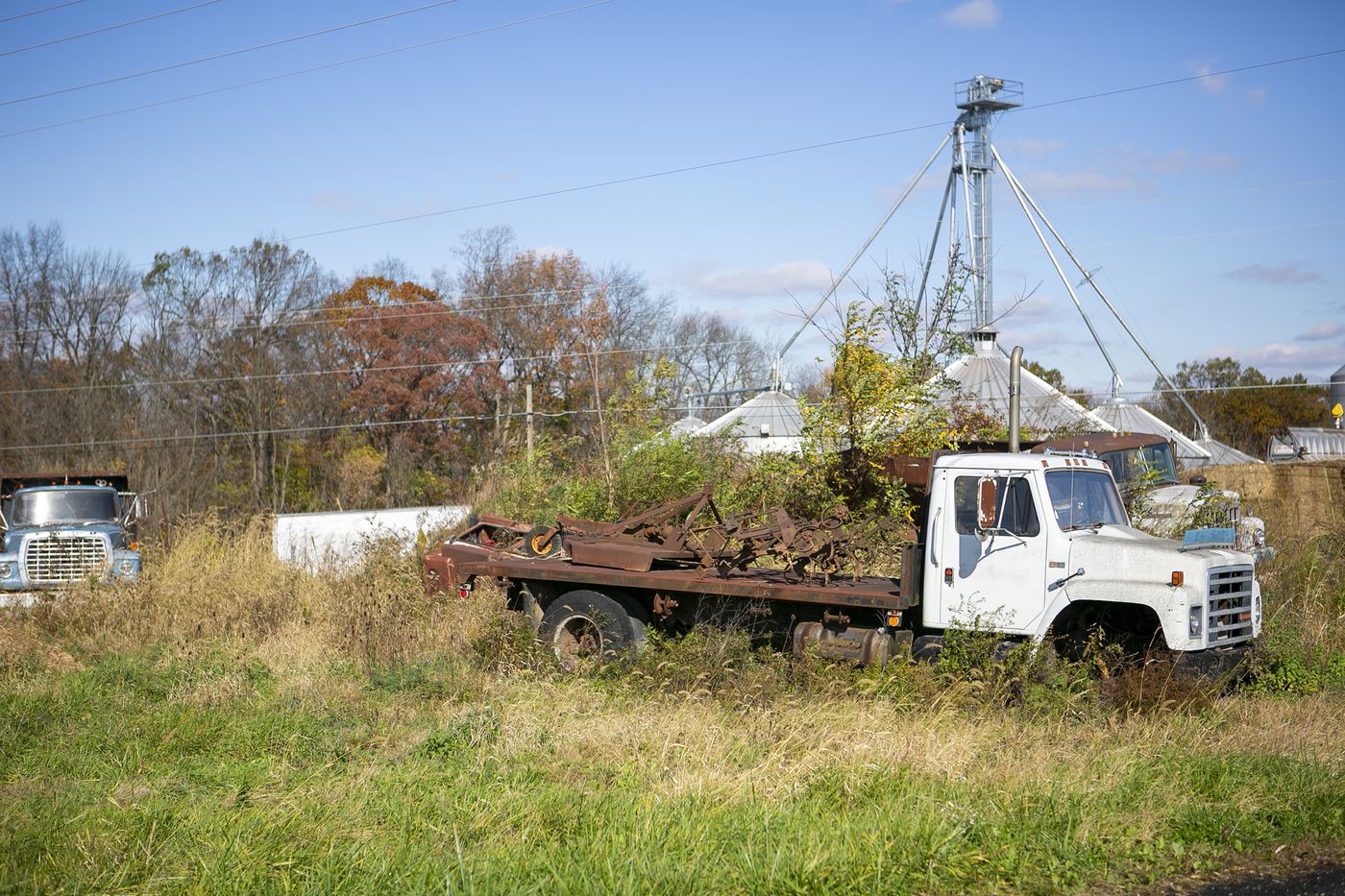Disclaimer: The views, suggestions, and opinions expressed here are the sole responsibility of the experts. No Scoop Today USA journalist was involved in the writing and production of this article.
To purchase Farm State votes Trump is Robbing the Rust Belt

In an all caps tweet a week ago, President Trump consoled America’s ranchers that their administration in the exchange war keeps on qualifying them for government appropriations “Until such time as the trade deals with China,Mexico,Canada, and others fully kick in” According to Trump, that help—furnished to assist ranchers with adapting to failing fare incomes because of remote counter for Trump’s duties—will be “Paid for out of the massive tariff money coming into the USA”
All things considered, in one sense, Trump is correct. U.S. levy coffers are flooding with record measures of obligations gathered on imports. Be that as it may, the cash isn’t “coming into” the nation. It’s as of now here. It’s simply being moved from U.S. organizations—for the most part makers—to the U.S. government. The suggestion that the “money coming into the USA” is some fortune politeness of remote makers and governments is absolutely bogus. Trump is playing a shell game here, trusting the open will dismiss the ball. They’re anxious to hide that they’re taking from the assembling segment to purchase ranch state votes.
For a long time, yearly U.S. tax “revenues” (all things considered, they’re incomes to the legislature, yet expenses to the private division) as a level of yearly U.S. import esteem was astoundingly steady. Somewhere in the range of 2001 and 2016, for instance, yearly levy assortments added up to between 1.2 percent and 1.7 percent of the estimation of absolute imports.
In 2017, the most recent year unaffected by Trump’s exchange strategies (duties didn’t begin until 2018), U.S. import esteem totaled $2.33 trillion and the $33 billion of obligations gathered on those imports added up to an exchange weighted normal tax of 1.4 percent—exactly, the normal over the past 16 years.
In 2018, Trump’s taxes started to produce results at various focuses in the year. The obligations gathered for the year flooded from $33 billion to $48 billion, or to 1.9 percent of a despite everything developing pool of imports. At that point, in 2019, everything hit the fan. Levies on steel and aluminum from about all over the place, and enormous swaths of items from China were as a result for the entire year. Year-end information show that complete import esteem declined, however obligations gathered soar to an astounding $71 billion—a 123 percent expansion more than 2017.
The exchange weighted normal tax of 1.4 percent that had won from 2001 to 2017 multiplied to 2.8 percent in 2019. In the event that the authentic pace of 1.4 percent had applied to 2018 and 2019 imports, U.S. Customs would have gathered obligations of $71 billion more than two years. Rather, over those two years, Customs gathered $129 billion in duties for a “windfall” of $58 billion.
But it is anything but a godsend. Those taxes were paid to U.S. Customs by U.S. shippers and those merchants aren’t electing to jump on projectiles to spare all of us from this gigantic taxation rate. The $58 billion is an assessment that has been forced on U.S. makers, coordinations suppliers, wholesalers, retailers, and shoppers.
A more critical take a gander at the import measurements gives a superior picture of precisely whom is bearing the weight of Trump’s levies or—to be completely forthright—who is financing Trump’s push to appease ranchers with singular amounts that are simply endeavors to purchase their votes.
Between 2017 (pre-tax base year) and 2019 (levies completely actualized), obligation assortments expanded from $33 billion to $71 billion. That $38 billion increment was created from new expenses forced on U.S. merchants of a wide cluster of merchandise. Most (right around 75%) of that $38 billion increment was created from charges forced on the material information sources and completed merchandise of eight assembling enterprises recorded in the table beneath.
Thus, among the realities and patterns the table uncovers is that obligations gathered on imports of electrical hardware and gear, and so on. (HTS Chapter 85) surpassed $10.2 billion of every 2019, which was a $8.3 billion increment over the obligations gathered on them in 2017. That expansion represents 21.7 percent of the expansion in all obligations gathered somewhere in the range of 2017 and 2019, which renders makers of “electrical machinery and equipment parts thereof” the U.S. industry generally troubled by the levy increments. More than one in each five dollars of that $38 billion “windfall,” which Trump intends to wire to the financial balances of ranchers in Iowa, Illinois, and Nebraska, will originate from the wallets of makers and shoppers (and retailers, wholesalers, and so forth.) of electrical apparatus, gear, and their parts.
The accompanying table gives a more clear thought of precisely which sorts of firms in the electrical apparatus enterprises are flipping the bill for ranchers. Merchants of this rundown of 6-digit HTS items, which incorporate makers who depend on these contributions to deliver their apparatus, are paying a sizable piece of Trump’s levies (practically 22% of the expansion in all duties, as noted in the table above). They incorporate firms that utilization electrical attachments, attachments, processors, printed circuits, engines, semiconductors, and different parts. They paid $8.3 billion a larger number of duties in 2019 than they did in 2017.
Most importantly Trump’s taxes have raised the expenses of creation for merchandise all through the assembling division. That has had unfavorable impacts over the assembling range with especially intense issues in enterprises that have likewise observed their incomes pressed by outside contenders who currently approach less expensive sources of info and can offer their items at lower costs than can U.S. firms.
In the mean time, U.S. ranchers have been the essential focuses of retaliatory taxes in light of the fact that agribusiness is ventured to convey unbalanced political load in Washington, which may be utilized to end the frenzy of the exchange war. Rather, Trump is multiplying down on their arrangement to purchase their tranquility. Be that as it may, the tab is falling on assembling. Also, their uneasiness could mean something bad for Trump’s re-appointment offer.
The appropriate response is to cancel all the duties forced since 2018 and start the way toward uncovering industry and horticulture from underneath gaps that never ought to have been burrowed.






